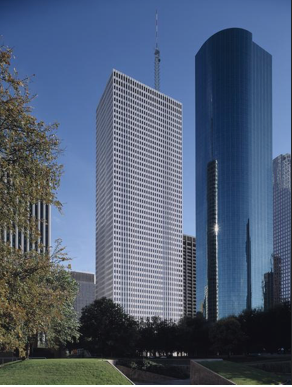
As Texans adjust to life under orders to stay at home during the new coronavirus pandemic — and scramble to cover expenses with incomes that were drastically cut or abruptly shut off — housing and real estate experts say it’s hard to predict what the parallel public health and economic crises will do to home values and sales.
A lot depends on how long the twin troubles last.
“We definitely will have a slowdown, but the question is how much and how long,” said Scott Norman, executive director of the Texas Association of Builders.
That’s a sudden about-face for what had been, until now, one of the most dynamic real estate markets in the country. The state has had five consecutive years breaking records in terms of numbers of houses sold and median prices, according to Texas Realtors. And Texas’ homebuilding industry has been solid, too; no other state had more building permits in 2019, according to census data.
Luis Torres, an economist with the Texas A&M Real Estate Center, said that the housing sector can be a barometer for the economy as a whole because it affects jobs of laborers, builders, realtors and a litany of other professions.
“And it has a multiplier effect into the rest of the economy, from moving companies to furniture stores,” Torres said.
Already, experts are seeing slowdowns in home showings — which are now largely done virtually — and expect that permits for new construction might also drop. For regions whose residents rely largely on the energy industry for work, like Houston or the Permian Basin, or on cross-border trade, like the Rio Grande Valley, home values and sales may dip more than in other Texas regions. And those areas may take longer to recover, too.
In Houston, there are already fewer people putting homes on the market, but home values among houses sold have actually improved. According to the Houston Association of Realtors, new home listings of single-family homes decreased 4.8% last month when compared with March 2019. But, at the same time, home prices increased 3.6%.
“Housing markets will be hit differently depending on the region. Yes, Houston would be hit harder, but Midland-Odessa would be hit even more,” said Torres. “Smaller economies are more volatile because they are less diversified.”
Another area that might see an economic downturn is the border because of a slowdown in commercial trade with Mexico.
“[Regions] like El Paso, McAllen, Laredo and Brownsville will also be hit hard because they weren’t doing that well before the COVID-19 sudden stop, and their economies will also be affected by the recession in the Mexican economy,” Torres said.
Statewide, physical home showings are down between 38% and 44%, according to Texas Realtors Chairman Cindi Bulla.
“We don’t yet know what percentage of that downturn is a reflection of our members’ commitment to narrowing down selections through virtual showings, sellers declining to allow their homes to be shown, or buyers unwilling or unable to move forward at this time,” Bulla said.
Statewide home sales data for March is not available yet, but researchers say prices should be stable, at least in the first months of the crisis.
“Home prices are sticky, and it’s difficult for them to decline drastically,” said Torres. “Economists are now expecting a U-shaped recession and recovery.”
What happens with Texans’ jobs after the public health crisis subsides will be a key driver of what happens with home sales and values.
“It’s too soon to predict the market impact of this disruption, but its duration will be highly determinant,” said Bulla. “Demand is heavily influenced by employment numbers, and those numbers will depend on how long our employers can sustain under shelter-in-place orders.”
In the meantime, the Department of Housing and Urban Development suspended foreclosures and evictions for mortgages insured by the Federal Housing Administration until the end of April. Fannie Mae and Freddie Mac, the two government-sponsored institutions that back mortgages, are doing the same for at least two months. The Texas Supreme Court also halted evictions until April 30, and many local governments extended similar measures.
But some fear these policies are postponing a larger problem: the delinquencies that might come from unemployed homeowners.
“That’s when you can have falling prices,” Torres said. “[Homeowners] might try to sell a home at the best price that they can, and that might be with a discount, and that could have an effect on home values.”
Comptroller Glenn Hegar said last month that the state’s unemployment rate could be headed for double digits, which could exceed the historic high of 1986’s 9.2% unemployment rate. Torres said that banks need to prepare for this scenario by, for example, giving two or three months free of pay and then adding them at the end of the contract. But even that might not be enough for people who are unemployed for longer periods of time.
“Mortgage debt will continue to exist and is not going away,” said Torres. “This is going to be an important issue that we are going to face after the sudden stop [of the economy] ends.”
Disclosure: The Texas Association of Builders, Texas Realtors, and the Texas A&M Real Estate Center have been financial supporters of The Texas Tribune, a nonprofit, nonpartisan news organization that is funded in part by donations from members, foundations and corporate sponsors.

